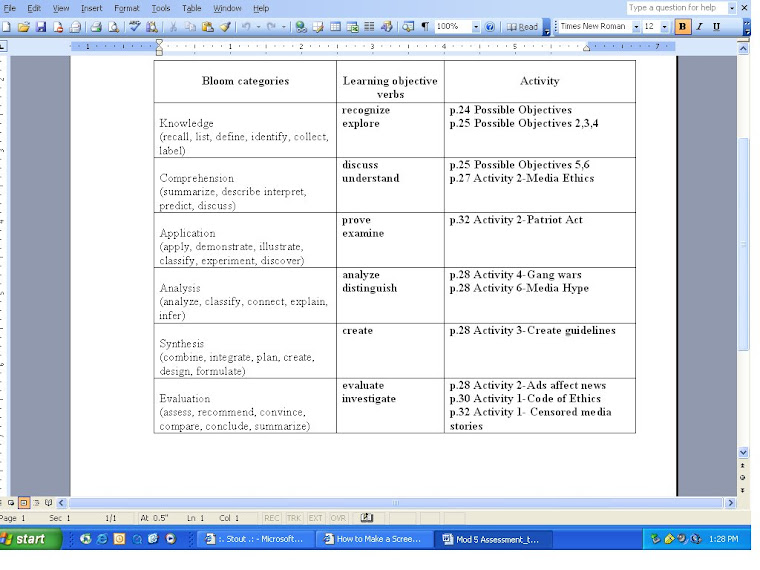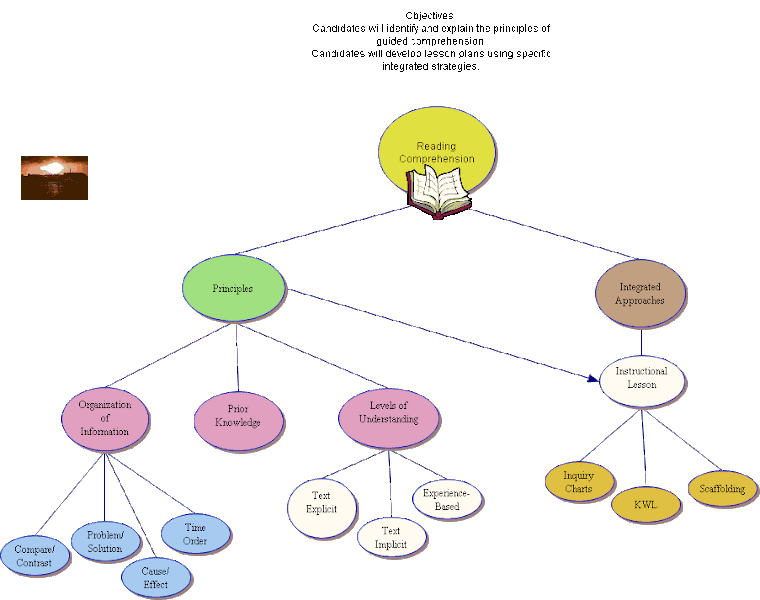Assessment for Understanding (edutopia online, 2005)
This article speaks to the forms of assessment we have, and the forms we need. The author states that often assessment conjures visions of end of the week, or quarter, or year tests. While these tests may serve some purpose, they do not fulfill the real purpose of assessment which is to inform instruction. Assessment needs to be a daily ongoing process. If one waits until the end of the week, and students haven’t mastered the concepts, a week of instructional time is wasted.
Three schools whose assessment practices gauge what students know and can do are reviewed. At the Urban Academy, an alternative high school in New York City, students must show what they are learning in every class, and in order to graduate, must show proficiency in six academic areas through performance assessments. I must disagree with the author’s efforts to link this assessment process with the statistics of the school’s student college acceptance quoted in the article. This is not a school which is open to all students. Prospective students must engage in a rigorous testing and interview process in order to gain admittance. To compare this high school’s college acceptance percentage with other public high schools in New York City is simply ludicrous and has no validity whatsoever!
The other assessment methods highlighted are project-based assessment and portfolio assessment. Each of these practices supports a process where teachers receive important feedback (formative assessment) on their students’ learning needs. Finally, the author addresses the current political climate of ‘accountability” and ‘high stakes testing”. Clearly a single test cannot describe the whole child. Hence, we need new forms of assessment.
Assessment and Online Teaching (Australian Flexible Learning Framework, July, 2004)
This guide presents issues of online assessment such as its importance, uses, barriers and selection of assessment strategies, and provides research resources. I found the issues raised very familiar as I have encountered all of them in my online teaching.
To me, the most interesting piece was the section entitled, “Does online change how, when, and where we select, monitor, or manage assessment?” I would agree with the authors that it has. They state that, in particular, vocational learning is no longer confined to special classrooms in schools, but can now take place anywhere in the private or public community. This is a very significant change that could provide for the resurgence of voc ed. Voc ed has practically disappeared from American high schools despite the fact that vocational students’ skills are an important contribution to society.
Also interesting is the issue of appropriate online teaching and assessment for diverse populations of students. I would agree that people value the flexibility of online learning without always understanding the responsibilities that go with it. Issues of culture, special needs, and lack of proficient reading and writing skills increase the challenge for those who design and teach online courses.
Subscribe to:
Post Comments (Atom)



1 comment:
Mary Lou, thanks for sharing your reflections...so formidable. You mentioned the culture and diversity issues that must be addressed in online teaching and learning in general and assessment in particular.
We do not cover this topic deeply in this course, but I hope you take some time to discover more on this topic. I have an article published that might help with that:
http://books.google.com/books?id=2QXK6R503xoC&pg=PA308&lpg=PA308&dq=khalsa+cultural+teamwork&source=web&ots=Y6ODJ46rY_&sig=BMfNlEdzQl833N-wy_iE4Y96AgU&hl=en&sa=X&oi=book_result&resnum=2&ct=result#PPA308,M1
Datta Kaur
Post a Comment